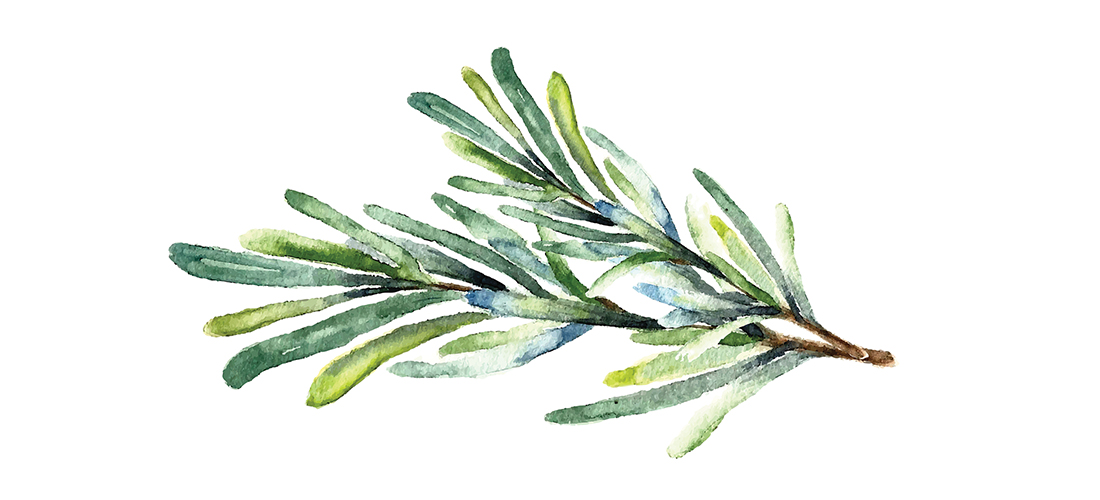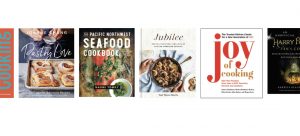
A poetic meditation
By Jaki Shelton Green
I’m never cooking alone, even at my most solitary moments. I am surrounded by generations of cooks, their wisdom, laughter, and their flawed and perfect recipes lifting my hands and heart savoring each ingredient as I realize that each ingredient represents all the joys, sorrows, healing and restoration of my life’s journey. These unseen hands hold me in passionate surrender to generosity as family and friends gather at my table reminding me that food creates community, holds my sense of identity, and conjures sensory surprises over and over again. The ghosts of other tables, other kitchens remind me that we are all just ingredients, and what matters is the grace with which I cook the meal.
never cooking alone, even at my most solitary moments. I am surrounded by generations of cooks, their wisdom, laughter, and their flawed and perfect recipes lifting my hands and heart savoring each ingredient as I realize that each ingredient represents all the joys, sorrows, healing and restoration of my life’s journey. These unseen hands hold me in passionate surrender to generosity as family and friends gather at my table reminding me that food creates community, holds my sense of identity, and conjures sensory surprises over and over again. The ghosts of other tables, other kitchens remind me that we are all just ingredients, and what matters is the grace with which I cook the meal.
My food odyssey is a soundtrack re-mix like the texture of an autobiography offering a throw-back to prayer-song, dance, birth, death, sex and rock and roll. The backyard chicken coops, vegetable gardens and mini orchards are long gone like my elders and the neighborhood of my childhood. What remains is me . . . the brown woman-child writing down the sizzle of cast iron skillets, the bold of the beet, the hot of the pepper pot, the earthiness of walnuts, the bitter of arugula.
Food helps me to express my past and present. Food helps me to create communal ties and honor my ancestral roots.
“Blessed assurance, Jesus is mine!
Oh, what a foretaste of glory divine!
Heir of salvation, purchase of God,
Born of his Spirit, washed in his blood” — Frances Crosby
My grandmother, Eva White Tate, hosted the Ora Shanklin African Methodist Episcopal Missionary meetings, which gathered monthly on first Monday evenings during the springs and summers of my youth. An agenda of devotions, song, prayer and Scripture segued into Old and New Business, projects to raise money for their many charitable activities, missionary dues, and a “love offering” for the sick. My grandmother, mother and aunts raced around all day preparing food and setting an elegant table for the elaborately coiffed church ladies in their flawless pristine summer linen, pastels, crepe de chine, patent leather and sexy slingbacks that made ticky-tacky squeals across the glistening, freshly waxed wood floor.
This monthly soiree featured milk glass vases holding peony globes and arrangements of snapdragons, Queen Anne’s lace and foxgloves strategically placed on the crisp white linen tablecloth adorning the antique oak dining table, monogrammed linen napkins, and the heirloom silverware that was left to my tiny hands to polish on a monthly basis. I was impressed that the deviled eggs required their own unique platter, designed especially for — deviled eggs. Mounds of homemade chicken salad garnished with apples, pecans and grapes, potato salad, pear walnut salad, canapés of cucumber-dill cream cheese, pimento cheese, stuffed olives, and perfectly browned chicken legs were presented on sparkling crystal and carnival glass serving platters.
 The inlaid glass sideboard was majestic with a centerpiece of magnolia, camellia and gardenia blossoms fresh cut from my grandmother’s flower garden and hosting cut glass pedestals of scrumptious coconut cake, petit fours, homemade (pink, green, yellow) mints, fresh strawberries, chocolate-covered peanuts, and my grandmother’s famous secret recipe egg custard. Pitchers of brewed mint tea and punch bowls bearing icy rainbow sherbet flanked both sides of the dessert display waiting to be admired and devoured by the white-gloved missionaries.
The inlaid glass sideboard was majestic with a centerpiece of magnolia, camellia and gardenia blossoms fresh cut from my grandmother’s flower garden and hosting cut glass pedestals of scrumptious coconut cake, petit fours, homemade (pink, green, yellow) mints, fresh strawberries, chocolate-covered peanuts, and my grandmother’s famous secret recipe egg custard. Pitchers of brewed mint tea and punch bowls bearing icy rainbow sherbet flanked both sides of the dessert display waiting to be admired and devoured by the white-gloved missionaries.
This pageantry of memory continues to feed my upper-crust soul. This pageantry was the backdrop for all the whispered gossips and secrets of uppity church women in between “a piece of this and a little dab of that.”
“Summertime, and the livin’ is easy
Fish are jumpin’ and the cotton is high
Oh, your daddy’s rich and your ma is good looking
So hush little baby, don’t you cry.” — Dubose Heyward
The smell of coffee brewing, bacon frying and hot biscuits browning were the only summer alarm clocks in our house. The first few weeks following school vacation, my brother and I spent lazy days playing between our house and Aunt Alice’s house or hanging out at Uncle Ervin’s Service Station pretending to be proprietors behind the counter taking money for gas, candy, milk, bread, but never the cigarettes. That fun would be interrupted when “the garden came in” with lima beans, snap beans, wax beans, okra, peas, squash, cucumbers, tomatoes, cantaloupe, cabbage, lettuce, watermelon and corn. The litany from porch to porch throughout the neighborhood addressed to our bored little brown bodies was, “Shut up whining, your little bellies will be glad to get this food come wintertime. Don’t put those hulls in that bowl.” So we pouted in-between snapping, shucking, peeling and rinsing so the grown folks could can, freeze, stew and preserve.
These were the summers when our “Up South” Northern kin folks took a notion to jump in a car or hop a bus or train and show up unannounced, usually with five or six children in tow. Our family had abundant land and food, so this uncouth behavior never daunted my mom, grandmother and aunts. They knew how to “hold their mouths right” and bring forth their best masks of civility so refined that no one ever read their furious annoyance hidden beneath the labor of love they laid out for two or three weeks presenting daily breakfast, lunch and supper smorgasbords of cured smoked ham and red-eye gravy, scrambled cheese eggs, grits, salmon croquettes, biscuits, bacon, sausage, homemade peach, strawberry, blackberry, pear jelly and preserves, stewed apples, potato cakes, cinnamon rolls and toast. The “guests” would feast and then retreat to the front porch, into the yard, watch television, or return to bed to sleep away their city blues.
With the guests “out of the way,” the women folks washed dishes, swept crumbs, cleared the table and talked in hushed ridicule and dismay about their hungry citified relatives. After they caught their breaths and a few of the leftover table scraps, they started the operation for lunch or “just a little something to tide them over,” which was usually homemade egg, tuna or chicken salad, the optional ham and cheese sandwich, tossed salad, chilled watermelon and cantaloupe, iced tea and fresh lemonade served outside on the porch.
Fried chicken, fried fish, turnip salad, chicken and dumplings, stewed tomatoes, potato salad, rice pudding, fried okra and squash, pound cake, apple pie and yeast rolls made the “Up South” folks remember where home really was. They never suspected by our good manners how their unannounced visits interrupted our summer explorations, building camps and forts in the woods, fishing, skinny-dipping, catching tadpoles, making June bug whistles, chasing lightning bugs and baking mud-pies all day in the sun.
“If you want to know
Where I’m going
Where I’m going, soon
If anybody ask you
Where I’m going
Where I’m going soon
I’m going up yonder
I’m going up yonder
To be with my Lord” — Tremaine Hawkins

Death often disrupts my family and community. We gather with food because food is the ultimate and final expression of how we love and the culture of our community. Feasting with the dead even now and in my past continues to provide me a way to reconnect and maintain connections with my ancestors and my daughter. My family and extended tribes have never needed a copy of “Being Dead is No Excuse: The Official Southern Ladies Guide to Hosting the Perfect Funeral.” It’s in our blood . . . we know what we know about the power of fried gizzards, leftover meat loaf, turkey necks, fried croakers, okra gumbo and moonshine.
The laying out of the dead and the laying out of the food pulls me closer and closer to that vortex of all things familiar and comfortable. These are forever images imbedded in my mind’s rolling video screen of the deaths of my father, grandmother, aunts, uncles, cousins and my daughter.
When my precious daughter Imani died, people came with their stories of her life neatly folded in the corners of picnic baskets. They delivered their stories of her whimsy, her sass and her bravado rolled inside a fresh loaf of sourdough bread, slithering across roasted vegetables laced with slow-drizzling balsamic, baked inside a piping hot strawberry rhubarb pie. The stories were alive inside the food. Imani loved food. Imani loved to feed people, so her stories became the food itself … roasted with superfluous green garlic, cilantro, cumin, basil, a rack of lamb Imani threatened to throw at her brother one Easter, the duck medallions I cooked for the last Christmas meal of her life with us, or the wild salmon steaks she’d hide in the freezer.
What I know that I know is food heals. Food covers the wounded heart. Food holds the raging storm and invites Spirit to the table.
“I will love you anyway
Even if you cannot stay
I think you are the one for me
Here is where you ought to be
I just want to satisfy you
Though you’re not mine
I can’t deny you
Don’t you hear me talking baby?
Love me now or I’ll go crazy” — Chaka Khan
Appearance. Taste. Texture. Symbolism. Succulence. The Interaction of Colors. The Dance Behind Oven Doors. Edible Metaphors. Velvety. Heavy Cream. Spice Jars. Simmer. Pan Fry. Cold Wash. Knead. Roll. Curl. Caramelize. Braise. Soak. Stir. Roast. Open Fire. Hot Oil. Blend. Fold. Mortar and Pestle. Pine Nuts. Raspberries. Almonds. Champagne Grapes. Mango Preserves. Muscadines. Tomatoes. Expresso. Le coq au vin. Charred Romaine. Mousse. Rose Water. Artichokes. Truffles. Butter. Candied Ginger. Chocolate. Dirty Rice. Brie. Cherries. Figs. Saffron Threads. Cinnamon. Nutmeg. Chutney. Parfait. Hazelnuts. Orange Peel. Lime Zest. Gar-licky Collards, Ambrosia, Chow Chow. Red Rice. Rosemary Sea Salt.
I love the way these words, sounds and ancient cooking rhythms sing inside my mouth . . . and honey chile’ don’t forget the Honey.
“If you really want to make a friend, go to someone’s house and eat with him. The people who give you their food give you their heart.” — Cesar Chavez
I remember the first meal I ever prepared for my husband. Lots of talking and long glances over a table full of lush sensuality. Mango gazpacho. Grilled salmon with a black bean-ginger-garlic glaze. Roasted asparagus. Brussels sprouts, beets, feta and walnuts drizzled with fig balsamic vinaigrette. Basmati rice. Yeast rolls. Arugula salad. Sparkling pear cider. Mixed berries dusted with coriander.
Once upon a time, I prepared a “last supper” for a lover I was kicking to the curb. It seemed best to leave a taste of me on his lips. Filet of beef in puff pastry and Madeira cream sauce. Caramelized shallots, carrots and mushrooms. Roasted lemon-garlic artichokes. Grand Marnier cheesecake.
My first memory of a romantic meal was sharing a tomato sandwich made with tomatoes I’d grown in a small bucket as a child with a little boy visiting my grandmother with his grandparents. I was mesmerized by his seersucker plaid shorts and matching bowtie. Crisp white shirt. White crew socks. White bucks. Magic happened between us when the juicy tomato dripped down his long elegant hands and he slowly licked the essence of my first harvest.
My husband and I love to cook. Our food landscape is forever changing, moving, reinventing itself, but what remains always is “sauce” so rich and soulful that it requires the licking of fingers, eyelids, noses, jelly-roll laughs, and oceans of soft fluttery kisses. Our food adventures continue to awaken our passion . . .
“Your stature is like that of the palm, and your breasts like clusters of fruit. ‘I said, ‘I will climb the palm tree; I will take hold of its fruit.’ May your breasts be like the clusters of the vine, the fragrances of your breath like apples, and your mouth like the best wine. May the wine go straight to my lover, flowing gently over lips and teeth. I belong to my lover, and his desire is for me.” — Song of Songs 7:7-10
We stroll into each other’s perfumed gardens gathering wild honeycomb. Whether dining by candlelight in our intimate dining room or sitting at a makeshift table in the woods with dandelions my love has picked on the way, we savor the bread between us. The anticipation of a romantic meal is oftentimes aphrodisiac enough. We can’t stop smiling and casting knowing glances at each other the whole time we are preparing the meal. Late at night I flow through celestial whipped dreamy clouds trailing the scents of rose and lavender as I fold gently into the crevices of pillows stuffed with crushed rosemary*.
*According to ancient scribes, rosemary was a love potion for engaged or married couples, symbolizing remembrance and fidelity. OH
Poet and teacher Jaki Shelton Green is North Carolina’s ninth poet laureate and is the recipient of a Poets Laureate Fellowship from the Academy of American Poets.
This piece was previously published in The Carolina Table: North Carolina Writers on Food (2016); Eno Publishers.





